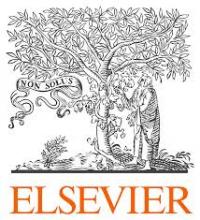Resource information
I argue in this paper that transaction cost is central to the analytics of climate adaptation in the local commons. I illustrate this by bringing together insights from Coase on tradability of property rights, Ostrom on institutional design principles for long lived commons and Williamson on transaction cost and governance mechanisms. I call this the COW model on the analytics of climate adaptation, which I illustrate using grounded theory in the case of the 400-year old zangjera irrigation societies in Northern Philippines. The zangjeras are highly vulnerable to climatic risks but has successfully managed to adapt steadily overtime. I argue that their ability to adapt is a function of transaction cost which is associated with some ingenious principles of institutional design such as: (1) clear allocation and tradability of rights and obligations; (2) fairness in the allocation of risks, costs and benefits; (3) reliance on prices and incentives as adaptation mechanisms; (4) adaptive efficiency, i.e. maximization of welfare at least adaptation cost; (5) reliable enforcement mechanisms; and (6) a polycentric structure of governance. I conclude that the COW model can provide a useful foundation for the analytics of climate adaptation.



